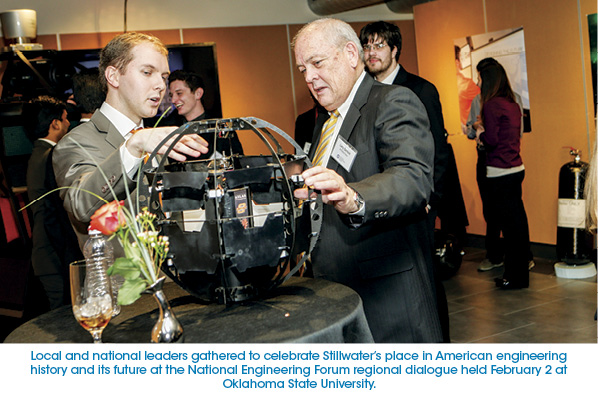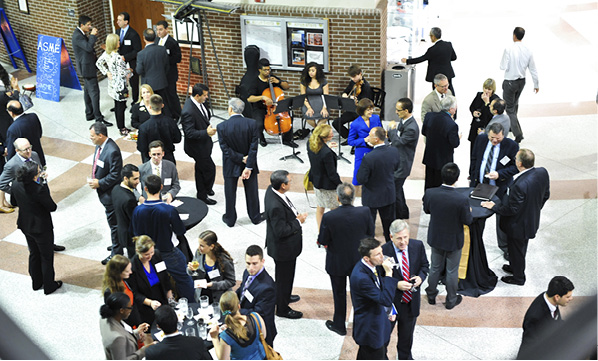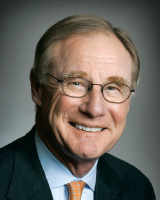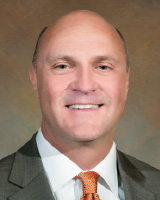Building Bridges and Making a Difference

When you cross a bridge, or several bridges, to get to work, to school, or to the doctor’s office, you probably don’t give it much thought. But for people in many parts of the world, just one bridge can make all the difference. If you’ve seen the IMAX film, “Dream Big,” you may already recognize Avery Bang. She’s the chief executive officer of Bridges to Prosperity (B2P), and she’s an engineer on a mission. In Bang’s 11 years with B2P, she has seen first-hand how infrastructure means more than just convenience. The NEF talked to her about creativity, failure, and the life-changing power of engineering.
What or who inspired you to become an engineer?
My dad is a civil engineer and worked on civil works projects throughout his career, including bridges. Our typical family vacations were not what you would call “typical.” We all piled into our car and visited public works projects. It was great, because as a young kid I got to see the underbelly of engineering and grew up having a strong appreciation for it. I saw how important engineering is for everything.
How can engineering structures, like the bridges built by Bridges to Prosperity, change people’s lives?
The built environment is the single most important part of our lives—the way we get to and from places, where we sleep, how we learn—and its engineers who create this environment. In the developed world, the everyday contributions of engineers go unnoticed because a working infrastructure is already in place, but in developing countries, that’s not the case.
Working in a place like Haiti, everything is so bare; you don’t live in a house with insulation and bedrooms or have roads that resemble anything we would be familiar with in the U.S. When you work in an environment where there is not a lot already in place, to have something new is really obvious. Something so simple as a bridge in these developing landscapes can be the single most important part of the infrastructure and gives you an appreciation for the difference engineering can make in people’s lives. You can provide isolated communities with access to essential healthcare, education, and economic opportunities.
When you see engineering in a place where it is noticed and appreciated, and where people show up because they know it’s going to make a difference, it makes engineering very human.

You have a double major in art and engineering. What role does creativity play in engineering?
Creativity is vital. In engineering, you are doing two things: identifying problems and solving them. Creativity is at the crux of problem-solving. Finding solutions is impossible to do without employing creativity because you are trying to come up with answers no one has thought of before.
It is important for society to see engineers as creative and the work of engineers as purposeful. As soon as we shift that perception, we will draw greater numbers of talented young people. For me, engineering is creative and it’s human. It has hardly anything to do with a calculator.
What have you learned from your mistakes in working in various communities around the globe?
I think failure is an important part of any career. As an entrepreneur, I believe in “fail often and fail fast.” At Bridges to Prosperity, we’re also good about naming our failures publicly and trying to learn from them. Along the way, we’ve learned different aspects of keeping people safe, and now we have solid standards in place. We also know there is no one-size-fits-all solution and our bridge designs need to be locally relevant. We’ve had the humility to say we don’t know everything, and it’s actually helped us grow and learn faster. We would not be where we are today without recognizing our failure along the way. That’s how engineering works—you fail, you learn, and then you improve!
What advice do you have for other young engineers on finding their passion and purpose?
Have a long attention span because finding something purposeful takes time and commitment. It’s a marathon, so don’t be afraid to spend a decade working your way up in one place and be persistent when you find a purpose. Any truly meaningful work is going to be hard. We need engineers who are willing to put in the time and who will think and dream big.
Photos Courtesy of Bridges to Prosperity
#Enspiration
NEF’s newest homage to the American engineer on social media is the hashtag #enspiration. It celebrates the art and beauty of everything we engineer. Post your #enspiration photos to celebrate how engineering makes a difference, and help make engineering more visible on social media.
#EngiKnows
Check out creative and informative social media graphics and GIFs featuring engineering factoids—NEF calls them #EngiKnows—and quotes from engineering leaders.







